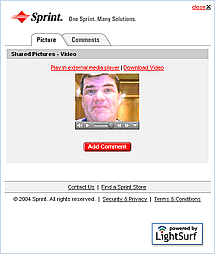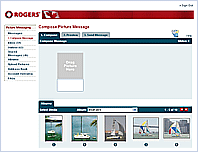Co-founder and "Senior Lead Programmer" for the PROFIT$ Merchandising System, a proprietary Point-Of-Sale Inventory and Reporting system for single or multi-store retail shoe and clothing outlets. Systems sold widely in the U.S., Canada, Mexico, and the Caribbean (with international currency exchange and display issues!). Was software architect and chief among a team that grew to five programmers. The PROFIT$ product eventually supported dozens of software and hardware support technicians, sales people, assorted executives and generated 20+ million dollars in gross sales. (see CAM Data above)
Among other things, two key features made PROFIT$ unique at the time:
- Report Generator - From the beginning, a powerful custom report generator was key; it offered the ability to produce reports at any level of detail from vendor, department, class, subclass, color and material down to individual SKUs (Stock Keeping Units). A "Group-by" feature with associated search criteria, user-defined column headings (choose up to 80 from list, arrange sequence), ability to save pre-defined reports and other features made the Report Generator a centerpiece of any sales demo.
Very unusual for the time, any arbitrary date range could be used. All original documents (sales, receivers and transfers) were saved, then re-examined and summarized whenever the date range changed. This allowed many different reports to be produced quickly for a given date range, passing though the original data only once.
- Two-dimensional size / width grids. Until then, inventory systems universally assigned a different SKU to each size and width of a shoe (for example). We allowed hundreds of user defined grids with column and row headings for shoe and clothing sizes. Each SKU was assigned an appropriate grid which was used as a template when ordering, receiving, and optionally, reporting on that SKU.
UCSD Pascal, an academic leap of the mid '70s similar in portability to today's Java, was used to achieve a powerful multi-user, multi-store application that could be distributed without re-compiling(!) across a variety of hardware (Intel, Motorola) and operating systems including single and multi-user DOS, Atari machines, Novell Networks and large UNIX networks.
A massive library of general purpose programming tools including database, list and screen handling features was created to support the PROFIT$ application (and others), many using object-oriented techniques pioneered in Smalltalk and Modula-2, translated to Pascal.
Implemented first on early "super-micro" computers using an SQL relational database, performance and data integrity demands eventually dictated a proprietary variable size record file system ("VSDO"), optimized for highest performance on UNIX systems. Complete with appropriate file maintenance utilities and supporting multi-partition files far larger than the limits imposed by the UCSD pSystem, this key development allowed PROFIT$ to grow with the demands of customers having 30..50 stores (255 max) and from 100 to 4000+ receipts per store in a single day.
With Jon Bondy, designed and implemented "pMail", a peer to peer Wide-Area-Network for unattended file and data (message) transfers between remote stores, including object code updates of all software. Logical messaging between applications on machines in remote locations supported easy, reliable, distributed database updates. Implemented in 1986 using the portable pSystem and direct dial, point to point modems, prior to development of the commercial Internet as we know it today.
 JosephOster.com (formerly wingo.com)
JosephOster.com (formerly wingo.com)
 Curriki.org
Curriki.org Zannel.com
Zannel.com edgeio.com
edgeio.com iMemoryBook.com
iMemoryBook.com theAstrologer.com
theAstrologer.com IMVU.com
IMVU.com LightSurf Technologies Inc.
LightSurf Technologies Inc.

 Outlook Technologies, Inc.
Outlook Technologies, Inc. Shutterfly.com
Shutterfly.com